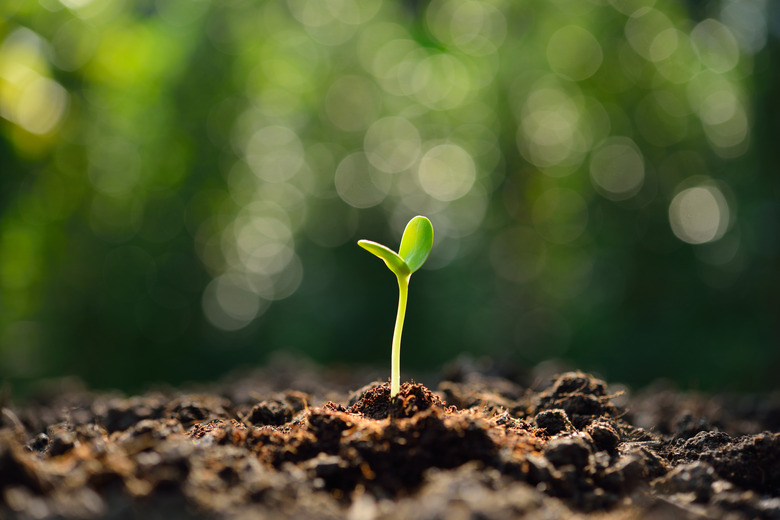How Do Energy Drinks Affect Plants?
Energy drinks are consumed recreationally either purely for taste or to increase alertness and energy and reduce tiredness. These drinks contain various compounds with stimulating effects on humans, with the types and quantities of these compounds varying between different drinks. These products also have the potential to affect plant development. Some different compounds can either aid or stunt plant growth, whereas others appear to have little effect. Common energy drink ingredients include caffeine, glucose, ginseng and taurine.
The Effects of Caffeine
The Effects of Caffeine
In humans, caffeine is a central nervous system stimulant. But in plants, caffeine can have an inhibitory effect, stunting growth and causing plants to become sickly. This effect can be attributed to various mechanisms. Caffeine absorbs calcium, an important plant nutrient, resulting in thinner vascular tissue and affecting processes such as membrane function, protein synthesis, detoxification and breaking down starch for energy. Energy drinks with lower caffeine levels are therefore recommended if the goal is improved plant growth, and indeed some studies have suggested that small amounts of caffeine can be beneficial to plants.
The Effects of Glucose
The Effects of Glucose
Photosynthesis is the continuous process in which light energy is used by plants to convert carbon dioxide and water into glucose and oxygen. Glucose is used by plants to release energy, as well as to produce cellulose, which strengthens cell walls, and proteins such as chlorophyll and enzymes, both of which are vital for plant functions. So it might be natural to assume that an increase in glucose would be beneficial for plant growth. Indeed, many gardening experts recommend glucose to increase a plant's energy reserves. However, a concentrated sugar solution can also affect water availability and uptake, affecting cell wall structure, causing plants to wilt and delaying flowering.
The Effects of Ginseng
The Effects of Ginseng
Ginseng (Panax ginseng) is an herb with a long history of use in traditional Chinese medicine. The stimulating effects of ginseng on humans are attributed to compounds known as ginsenosides, and ginseng also contains various other compounds, including vitamins and minerals. The dried ginseng root and extracts made from it are used for both traditional preparations and modern energy drinks. Vitamins such as B6 and minerals such as zinc may encourage overall plant health and growth, although the effects of ginsenosides on plant growth are not known.
The Effects of Taurine
The Effects of Taurine
Taurine is an organic acid that supports nervous system development. It is found naturally in animal products such as fish and meat but is almost nonexistent in plants. Taurine is included in energy drinks to aid mental and athletic performance. Studies have suggested that taurine treatments can promote the growth of plant seedlings, increasing root length, plant height and biomass while also improving photochemical efficiency and protecting against membrane damage. Several energy drinks contain high enough levels of taurine to produce such effects on plant growth.
References
- Biology and Medicine; Studies on the effect of caffeine on growth and yield parameters in Helianthus annuus L. variety Modern
- BBC; GCSE Bitesize Science: Plants
- Plant Physiology; Effects of Sugar on Vegetative Development and Floral Transition in Arabidopsis
- Principles and Practice of Phytotherapy; Simon Mills and Kerry Bone
- Mayo Clinic; Taurine is listed as an ingredient in many energy drinks. What is taurine? Is it safe?
- Journal of Plant Physiology and Molecular Biology; Physiological effects of taurine on the growth of wheat (Triticum aestivum L.) seedlings
Cite This Article
MLA
Smith, Clare. "How Do Energy Drinks Affect Plants?" sciencing.com, https://www.sciencing.com/energy-drink-affect-plants-12002422/. 13 March 2018.
APA
Smith, Clare. (2018, March 13). How Do Energy Drinks Affect Plants?. sciencing.com. Retrieved from https://www.sciencing.com/energy-drink-affect-plants-12002422/
Chicago
Smith, Clare. How Do Energy Drinks Affect Plants? last modified March 24, 2022. https://www.sciencing.com/energy-drink-affect-plants-12002422/
